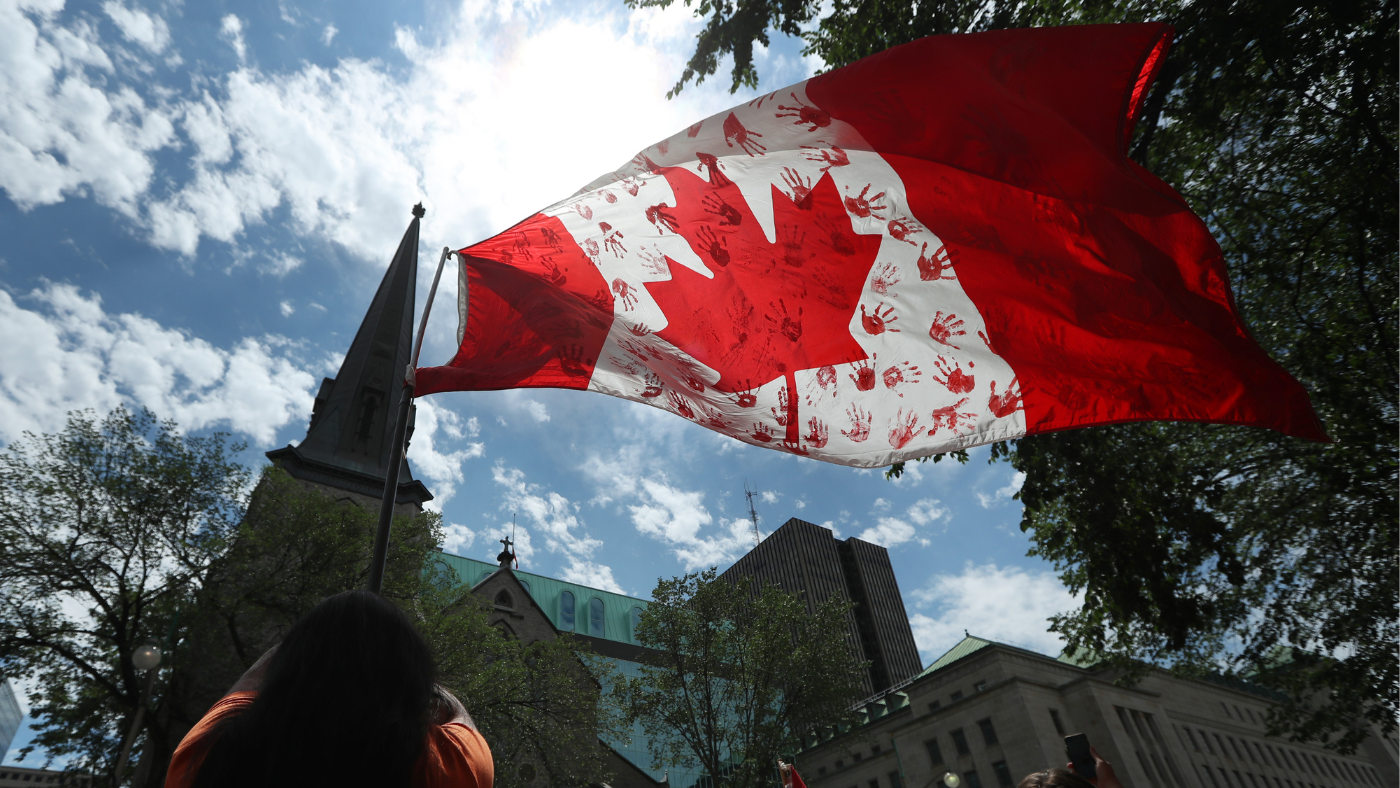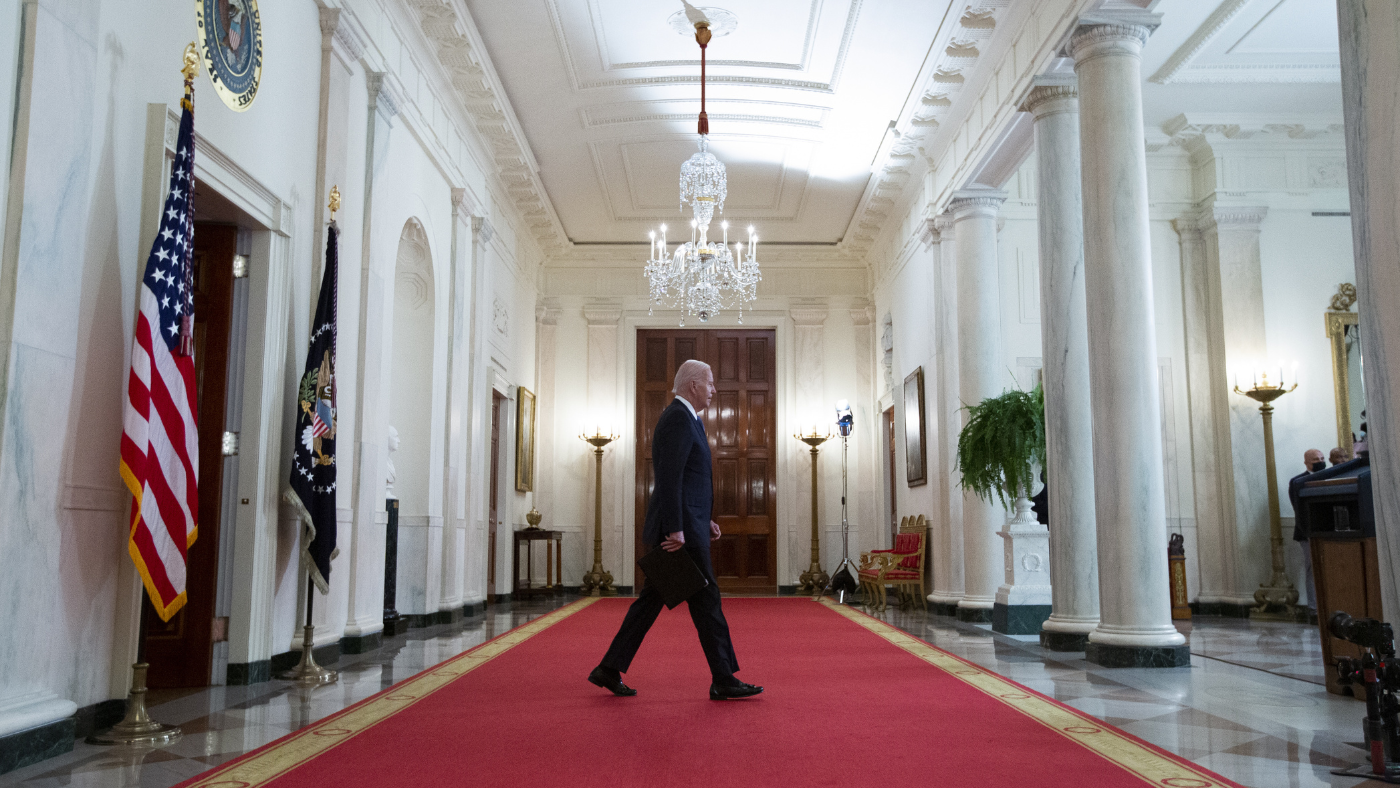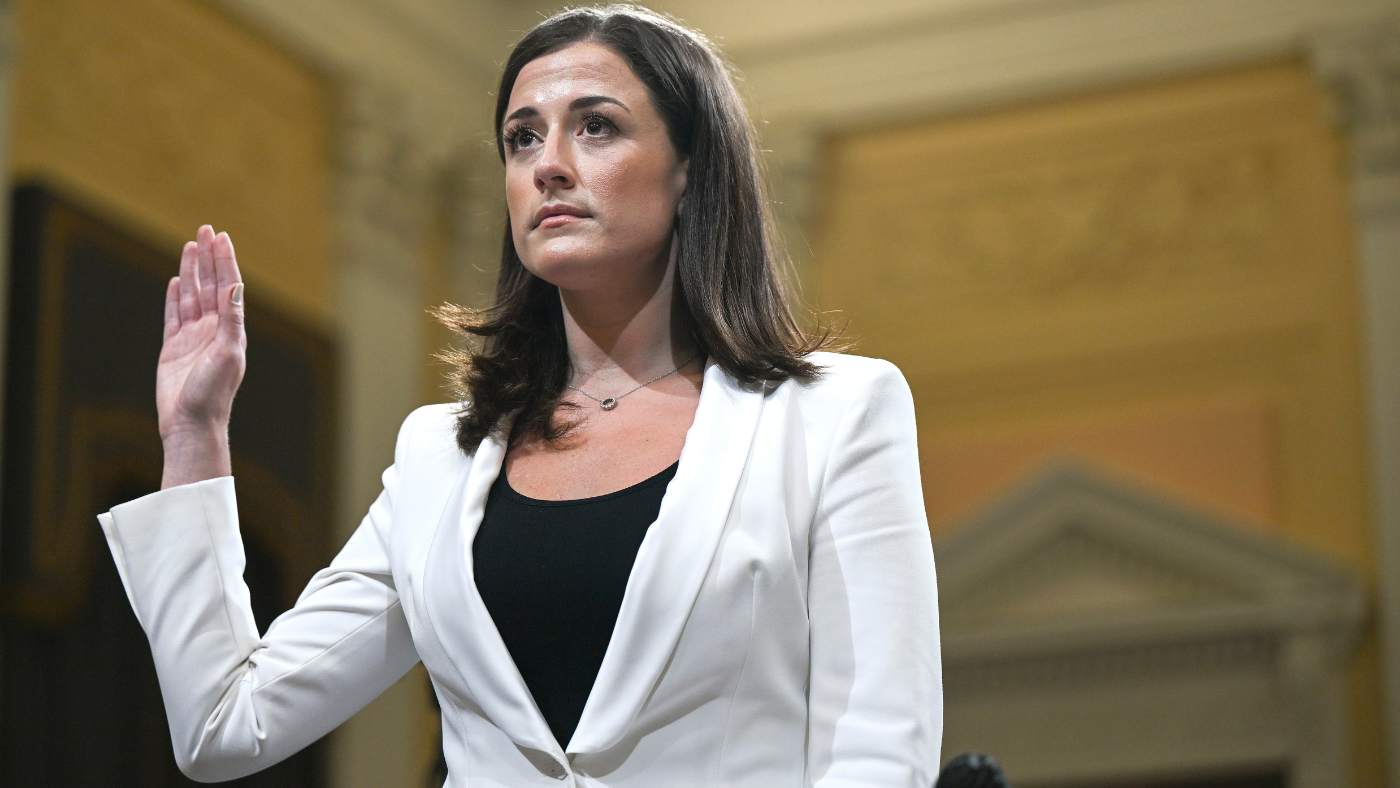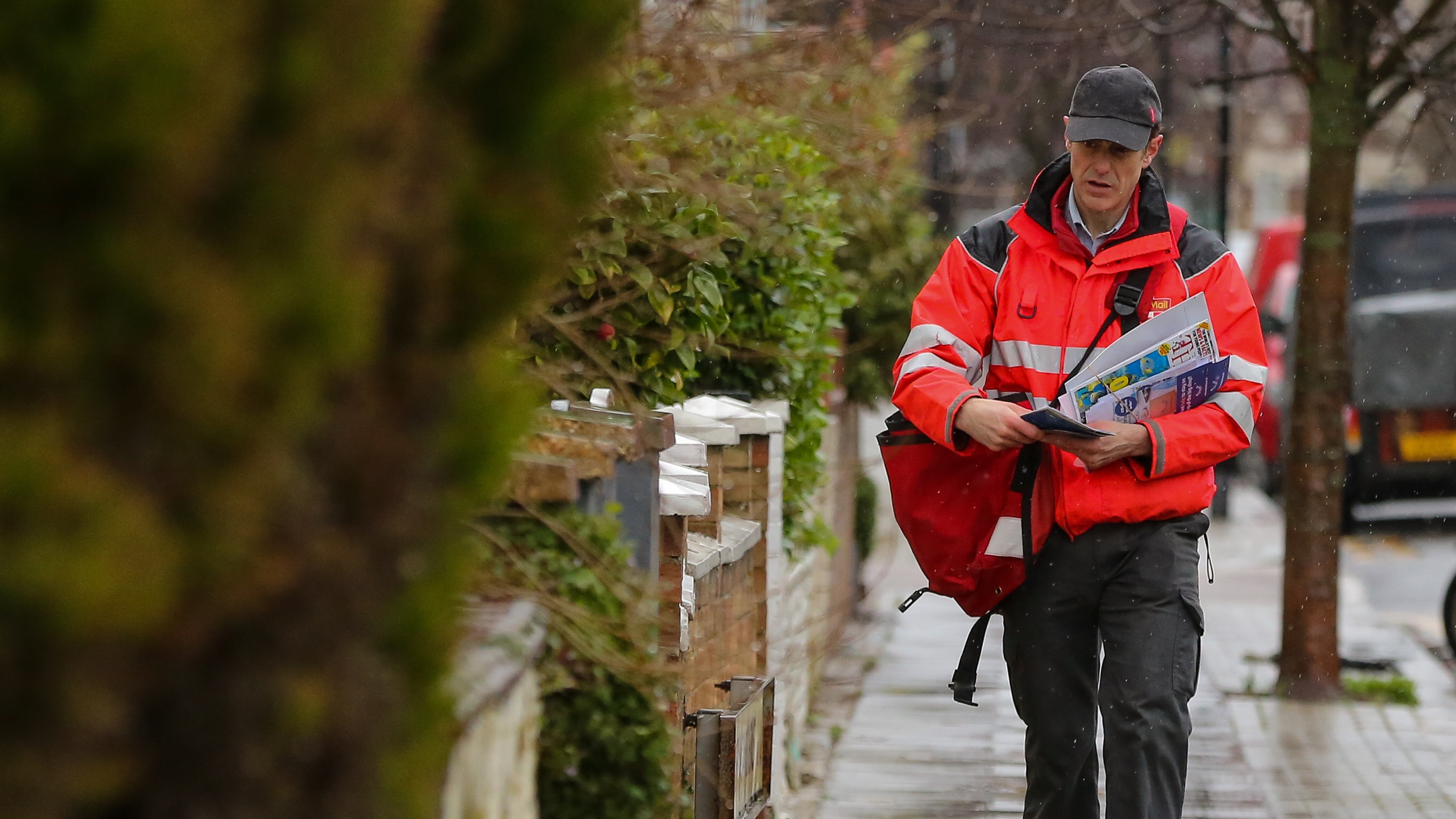‘I have no problem with a holiday in Britain - it’s everyone else’
Your digest of analysis and commentary from the British and international press

- 1. Britain is lovely, just watch out for the locals
- 2. Boris Johnson’s ‘Global Britain’ fantasy cannot disguise the UK’s decline
- 3. Home-working kills innovation and creativity
- 4. Tony Blair is still wrong on his 50% university target
- 5. Green companies must reach out to consumers lacking conviction
A free daily email with the biggest news stories of the day – and the best features from TheWeek.com
You are now subscribed
Your newsletter sign-up was successful
1. Britain is lovely, just watch out for the locals
Giles Coren in The Times
on staycations
“I think we can all agree that the two worst things in the world are camping and picnics,” writes Giles Coren in The Times. So, when you read “that there is a shortage of tents and picnic baskets which ‘could hit staycation plans’, you know that you are truly dwelling in the end times”. A staycation in the UK can be wonderful, says Coren. “The only problem? Getting there. M40, M4, M5 all solid, in every direction, so that, with stops to charge my electric car, getting as far as Cardiff took as long as it would have done to get to our only other feasible legal holiday option, Australia.” But the bigger problem for Coren, he says, “is not that I am going to have to holiday in Britain – which is perfectly nice in its way – it is that everyone else is too.”
The Week
Escape your echo chamber. Get the facts behind the news, plus analysis from multiple perspectives.

Sign up for The Week's Free Newsletters
From our morning news briefing to a weekly Good News Newsletter, get the best of The Week delivered directly to your inbox.
From our morning news briefing to a weekly Good News Newsletter, get the best of The Week delivered directly to your inbox.
2. Boris Johnson’s ‘Global Britain’ fantasy cannot disguise the UK’s decline
Martin Fletcher in the New Statesman
on a ‘branding exercise’
At this week’s G7 summit, we’ll hear “much talk of ‘Global Britain’, unshackled from the EU’s corpse, regaining its rightful place as a leader of the free world”, writes Martin Fletcher in the New Statesman. But, “as ever with [Boris] Johnson, his words should be taken with a giant pinch of salt”, writes Fletcher. “He has turned the making of bold, headline-grabbing, long-term promises for others to fulfil (or not) into an art form,” and has become a “master of Orwellian doublespeak, with the trite phrase ‘Global Britain’ being the single most egregious example”, he says. But Johnson’s Global Britain is “no more than a branding exercise”, argues Fletcher. “We are, in truth, the ‘Little Britain’ that voted, five years ago, to pull up the proverbial drawbridge”, and in doing so, “we have sundered relations with our former friends and allies in Europe, and squandered our usefulness to the United States.”
A free daily email with the biggest news stories of the day – and the best features from TheWeek.com
3. Home-working kills innovation and creativity
Thomas Fink in The Telegraph
on the value of interaction
“To go back in or not to go back in? That, as we emerge from the biggest remote-working experiment in history, is very much the question,” writes Thomas Fink in The Telegraph. But there is “a fundamental reason why the office will always have the edge over remote working,” writes Fink, and that’s interaction. “It is interaction with others that adjusts our direction of focus and gets us unstuck by providing a skill or insight we lack. This is the magic ingredient that makes an organisation more than the sum of its parts.” For example, Michael Faraday, as a young laboratory assistant in 1821, “chanced to overhear his boss Sir Humphry Davy talking about the mysterious circular effects of electromagnetism. Faraday thought: I can do something with this.” It was after this “unplanned interaction” that he sought to invent the electric motor: “a transformative invention that has shaped the modern world. Would Faraday have managed it, if he had been working from home? Would he, heck.”
4. Tony Blair is still wrong on his 50% university target
David Goodhart on UnHerd
on education, education, education
The Labour prime minister Tony Blair’s “infamous” 1999 target of sending 50% of young people to university has “socially and psychologically” sliced the country into two, says David Goodhart on UnHerd. Holding the “ladder up and out for bright kids from lower-income backgrounds is a desirable goal. But pull the camera back and it doesn’t look so clever,” Goodhart argues. “Social mobility actually fell as a result of university expansion because it came to be monopolised by the middle and upper middle class, while siphoning off the brightest kids from post-industrial, working class towns” in turn, exacerbating regional inequality, “and leaving those who didn’t make it feeling even more left behind”.
5. Green companies must reach out to consumers lacking conviction
Judith Evans in the Financial Times
on a green surge
“Until recently, the conventional wisdom in consumer goods was that people would happily express their green preferences in surveys and largely discard them at the door of the supermarket, like parishioners who attend church only at Christmas,” writes Judith Evans in the Financial Times. “But a surge in sales of green-marketed products like Oatly, whose revenues were around $400m last year, shows this assumption to be outdated,” she writes. However, to “achieve widespread change, marketers will need to ensure new habits move beyond fad territory”, Evans writes. For Oatly, and green-marketed products like it, “that means proving wrong an executive at another food group who dismisses the company with the question: ‘How far can being very cool take you?’”
-
 How the FCC’s ‘equal time’ rule works
How the FCC’s ‘equal time’ rule worksIn the Spotlight The law is at the heart of the Colbert-CBS conflict
-
 What is the endgame in the DHS shutdown?
What is the endgame in the DHS shutdown?Today’s Big Question Democrats want to rein in ICE’s immigration crackdown
-
 ‘Poor time management isn’t just an inconvenience’
‘Poor time management isn’t just an inconvenience’Instant Opinion Opinion, comment and editorials of the day
-
 ‘The UK’s malaise will not end with the Prime Minister’s exit’
‘The UK’s malaise will not end with the Prime Minister’s exit’Instant Opinion Your digest of analysis from the British and international press
-
 ‘Police tactics are not getting worse, they are simply being filmed’
‘Police tactics are not getting worse, they are simply being filmed’Instant Opinion Your digest of analysis from the British and international press
-
 ‘G7 leaders missed a golden opportunity’
‘G7 leaders missed a golden opportunity’Instant Opinion Your digest of analysis from the British and international press
-
 ‘It takes some soul searching to celebrate Canada Day’
‘It takes some soul searching to celebrate Canada Day’Instant Opinion Your digest of analysis from the British and international press
-
 ‘Breakthrough on abortion rights could be there if Biden reaches for it’
‘Breakthrough on abortion rights could be there if Biden reaches for it’Instant Opinion Your digest of analysis from the British and international press
-
 ‘If only Mark Meadows had even half Cassidy Hutchinson’s courage’
‘If only Mark Meadows had even half Cassidy Hutchinson’s courage’Instant Opinion Your digest of analysis from the British and international press
-
 ‘Boris Johnson measures success in biceps rather than brain power’
‘Boris Johnson measures success in biceps rather than brain power’Instant Opinion Your digest of analysis from the British and international press
-
 ‘Asking posties to act as community watchmen is an inspired idea’
‘Asking posties to act as community watchmen is an inspired idea’Instant Opinion Your digest of analysis from the British and international press